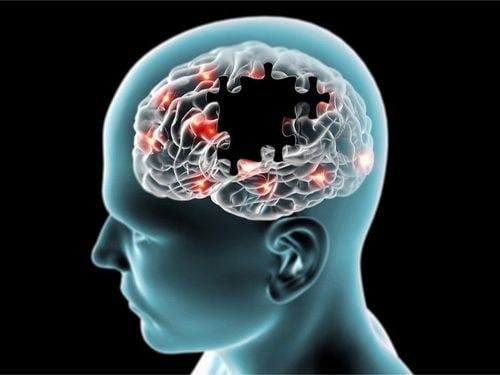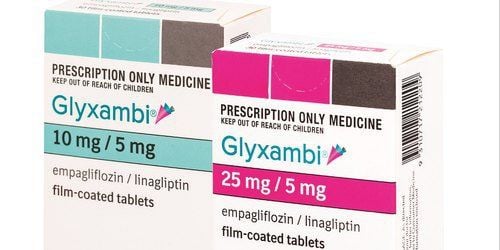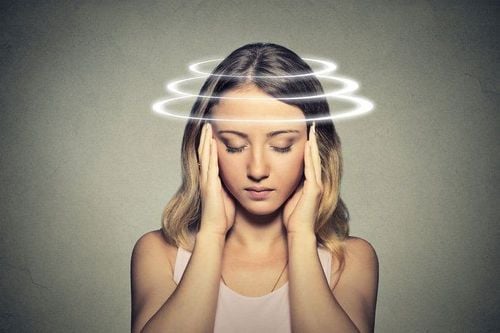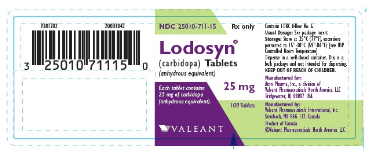This is an automatically translated article.
Dementia, also known as dementia, is a condition in which a person suffers from a simultaneous decline in memory, thinking, and social abilities. The disease not only has a great impact on health but also has a significant impact on the patient's life.In fact, dementia, also known as dementia, is not a specific disease but this is a collection of symptoms of impairment in memory, thinking and social abilities, causing negative effects. on patients' quality of life and daily activities.
Dementia includes memory loss, but memory loss alone can have many other causes. Therefore, dementia is not synonymous with memory loss. For example, the most common cause of advanced dementia in older adults is Alzheimer's disease and many others.
Depending on the specific cause, some cases of dementia can still be cured.
Here are some things that increase your chances of developing dementia.
1. Age increases the likelihood of dementia
Alzheimer's disease is the most common cause of dementia in the elderly. Currently, about one-third of people aged 85 and over have signs of the disease. Genetics are also a factor in causing this disease as you get older, in addition to a number of other factors such as diet, exercise, social life and other diseases.
2. Heart disease
People with heart disease may have a higher risk of heart attack or stroke, which also makes dementia more likely.
Heart disease is usually caused by a build-up of plaque in the arteries around the heart (atherosclerosis), which slows blood flow to the brain and puts you at risk of stroke. everything.
There are many factors that contribute to your heart disease, including tobacco use, diabetes, high blood pressure and high cholesterol - which can also lead to dementia.

Bệnh Alzheimer là nguyên nhân phổ biến nhất gây ra chứng sa sút trí tuệ ở người già
3. Diabetes Increases Dementia Chances
Currently, researchers have not yet determined exactly why people with diabetes develop dementia more often. However, according to many research results, people with diabetes are more likely to have damage to their blood vessels. This can slow or block blood flow to the brain and damage brain regions, leading to vascular dementia. Some people can slow brain decline if they control their diabetes well with medication, exercise, and a healthy diet.
4. High cholesterol
High cholesterol levels, especially in middle age, are associated with obesity, high blood pressure and diabetes. All of these factors can increase the risk of dementia, but experts aren't sure if cholesterol itself can cause additional problems. Some studies suggest that high cholesterol levels in middle age may be associated with an increased risk of Alzheimer's disease later in life, but the link has not been well established.
5. High blood pressure
Even if you have no other health problems, high blood pressure makes you more susceptible to dementia and Alzheimer's disease. That could be because high blood pressure damages blood vessels in the brain. This can also lead to other conditions that cause dementia such as stroke. Control blood pressure with proper diet, exercise, and medication if needed to slow or prevent it from happening.
6. Depression
If you feel depressed all the time, you are more likely to have dementia. Scientists have yet to determine for certain that that is a cause. Because it can simply be an early symptom or a sign of other causes such as Parkinson's and Huntington's disease. Consult your doctor or therapist if you feel depressed for more than 2 weeks and contact them immediately if you think of harming or hurting yourself. Therapies and medications can help treat depression.
7. Head Injury
A mild traumatic brain injury may not make you more susceptible to dementia later in life. However, more severe or repeated blows or falls, can double or quadruple the risk of the disease, even years after the first. Go to the hospital if you hit your head and lose consciousness or have blurred vision, or feel dizzy, confused, nauseous, or become overly sensitive to light.
8. Obesity
Gaining a lot of weight in middle age can put you in danger. Obesity also increases the odds of heart disease and diabetes, which are linked to dementia. You can check your BMI (body mass index) online to see if your numbers fall within the “obese” range. Your doctor can help you set appropriate weight loss goals. A healthy diet and regular exercise can help turn the tide.
9. Gen
Genes are also one of the causes of dementia. However, dementia does not always run in families. And even having the risk genes doesn't mean you'll get the disease. If you're thinking about genetic testing for Alzheimer's, ask your doctor about the pros and cons — and about genetic counseling. Doctors don't often recommend these tests.
10. Stroke
The patient had a stroke that caused damage to the blood vessels. This makes it difficult to think, speak, remember or pay attention (vascular dementia). Factors that put you at higher risk of stroke, such as high blood pressure, heart disease, smoking, etc. also increase your risk of dementia.
11. Insomnia
If you regularly suffer from insomnia or don't get enough sleep, you may be more susceptible to dementia, including Alzheimer's disease. You should establish and adhere to a reasonable, regular sleep routine, avoid alcohol, caffeine and use of electronics in the evening.

Nếu bạn thường xuyên bị mất ngủ hoặc ngủ không đủ giấc, bạn có thể dễ bị sa sút trí tuệ
12. Smoking
Smoking damages blood vessels and puts you at risk of stroke and is a cause of vascular dementia. This can lead to problems thinking or remembering. Talk to your doctor or mental health professional if you smoke and want support to quit.
13. Dementia with Lewy body
In this and other forms of dementia, proteins called Lewy bodies build up and damage brain cells. Dementia with Lewy bodies can lead to problems with memory and movement. The person with this disorder may dream or see things that are not there (hallucinations). Although there is no cure, your doctor can help you treat the symptoms.
14. Should apply a diet
The traditional heart-healthy Mediterranean diet is also good for your brain. This diet includes whole grains, fruits, vegetables, fish, nuts, olive oil and other healthy fats like avocado (in moderation) and consumes red meat to a minimum. .
15. Exercise
People who are physically active are generally more mentally sharp and have a lower risk of Alzheimer's disease and other types of dementia. If you're in the early stages of these conditions, regular, active physical activity can help you think more clearly and remember things. You don't have to go to extreme thoughts or actions. Just get out for a brisk walk, dance, garden, or some similar activity. Exercise for up to 30 minutes or more on most days of the week.
If you suspect yourself or a loved one has signs of dementia and need help and advice from a doctor to get treatment and avoid the bad consequences that the disease causes, the patient can go to the hospital. Psychological Clinic - Vinmec International General Hospital. Officially put into operation in April 2019, with the function of examining, consulting and outpatient treatment of psychological problems and psychological health. With modern equipment, Vinmec Mental Health Clinic is currently cooperating with experienced professors and experts:
MSc. Doctor Nguyen Van Phi - Psychologist, Vinmec Times City International Hospital: with 7 years of experience working as a lecturer in Psychiatry - Hanoi Medical University, Doctor Psychiatrist at Hanoi Medical University Hospital & Central Geriatric Hospital, and a member of the Vietnam Psychiatric Association. MSc. Dr. Pham Thanh Luan - Psychologist, Vinmec Times City International Hospital: with 5 years of experience in research, examination and treatment of Psychiatric diseases, trained at prestigious universities trust, practice in-depth expertise in the French Republic. MSc. Doctor Nguyen Trong Hien - Psychologist, Vinmec Times City International Hospital: with 6 years as a lecturer in the Department of Psychiatry - Hanoi Medical University and Central Geriatric Hospital, together with Dr. Experience in research, examination and treatment of diseases in Psychiatry such as: emotional disorders, stress-related disorders and body dysmorphic disorders, developmental disorders in children, adolescents & childbirth .... Along with the implementation of psychological tests, intensive psychotherapy for diagnosis and treatment, in order to bring the best medical examination and treatment effect.
Please dial HOTLINE for more information or register for an appointment HERE. Download MyVinmec app to make appointments faster and to manage your bookings easily.
Reference source: webmd.com












